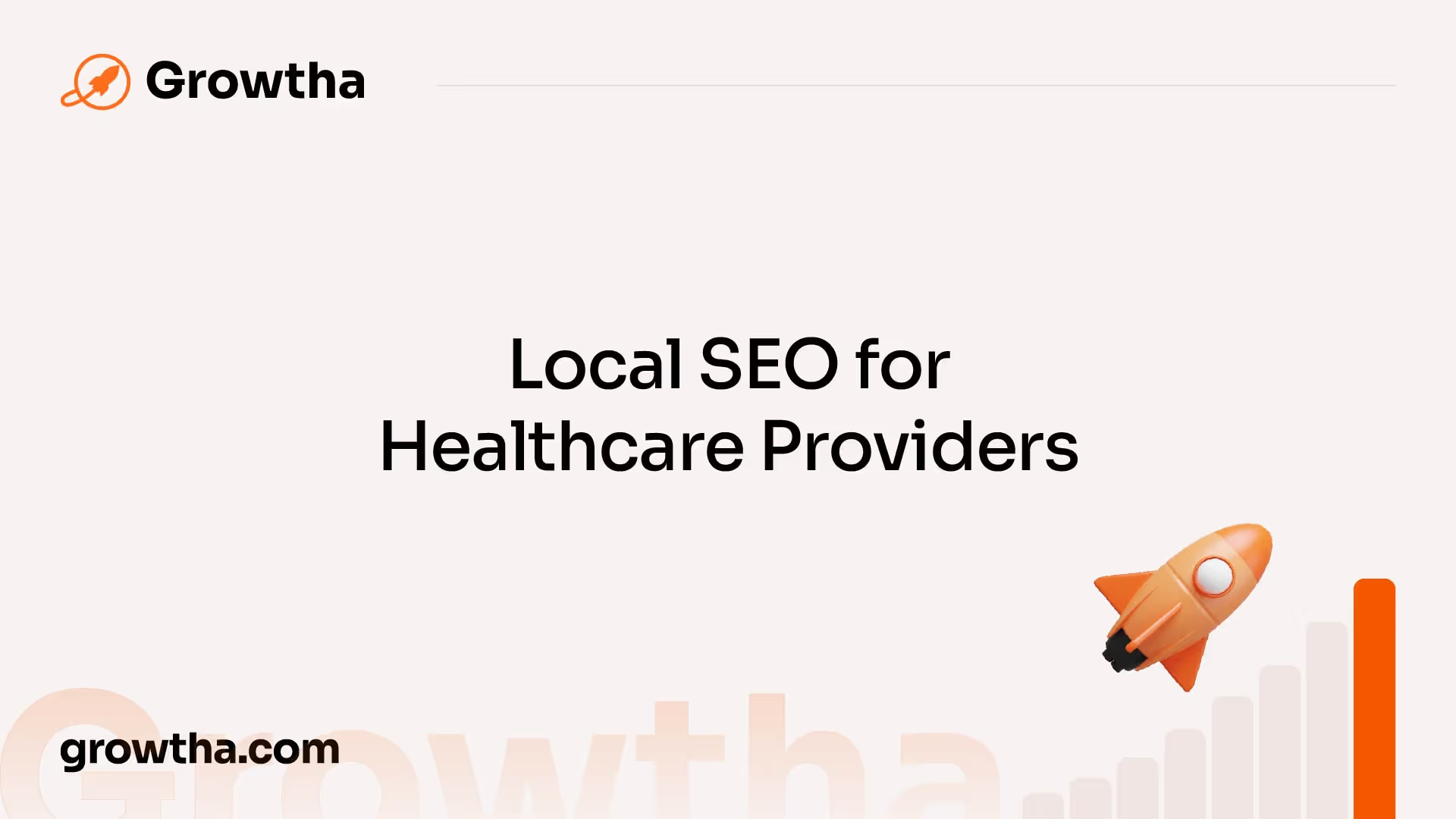Navigating SEO-Friendly Medical Content
With 81% of people searching online for a product or service, it's crucial for healthcare providers to ensure that their websites appear prominently in search engine results.


Navigating SEO-Friendly Medical Content
Understanding Medical SEO
In the digital age, having a strong online presence is essential for healthcare providers to reach and engage with their target audience. This is where medical SEO (Search Engine Optimization) comes into play. Medical SEO refers to the strategies and techniques used to optimize medical websites and content for search engines, ultimately increasing visibility and driving organic traffic.
Importance of Medical SEO
Medical SEO has become a necessity that should be part of every well-developed medical marketing strategy. With 81% of people searching online for a product or service, it's crucial for healthcare providers to ensure that their websites appear prominently in search engine results [1]. By implementing effective medical SEO practices, healthcare providers can increase their online visibility, attract potential patients, and establish themselves as authoritative sources of information.
User Search Behavior
To understand the importance of medical SEO, it's essential to comprehend user search behavior. Patients and healthcare professionals input specific medical queries (keywords) into search engines such as Google, Yahoo, or Bing. These search engines then display a curated selection of website links on the Search Engine Results Page (SERP), complete with customized title tags and meta descriptions [1].
To ensure that their websites appear on the SERP, healthcare providers need to optimize their content with relevant keywords and phrases. By understanding the common search queries related to their medical field, healthcare providers can align their content to match the search intent of their target audience. This helps them attract the right audience and provide valuable information or services.
To illustrate the significance of user search behavior, consider the following statistics from LinkBuilder.io:
- Every minute, there are 70,000 healthcare-related searches.
- 77% of patients use Google search before picking a hospital.
- 90% of users pick new doctors based on online reviews.
- 71% of patients won't book an appointment if they can't find relevant information on your website.
These statistics emphasize the need for healthcare providers to optimize their online presence and cater to the information-seeking behavior of their target audience. By implementing effective medical SEO strategies, healthcare providers can ensure that their content appears in relevant search results, attracting potential patients and establishing trust.
Understanding the importance of medical SEO and user search behavior lays the foundation for healthcare providers to navigate the world of SEO-friendly medical content. By optimizing their websites and creating valuable, informative content, they can enhance their online visibility, connect with their target audience, and provide accurate and trustworthy information in the digital healthcare landscape.
Key Elements of Healthcare SEO

To achieve success in healthcare SEO, it's important to understand and implement key elements that contribute to improved search engine visibility. This section will explore three crucial aspects: SEO keywords in healthcare, on-page SEO strategies, and technical SEO essentials.
SEO Keywords in Healthcare
Keywords play a significant role in ranking well in search engine results. Staying up to date with healthcare trends and using popular and well-established keywords can maximize visibility.
In healthcare SEO, keyword research is essential for fine-tuning page visibility on search engines and aligning content with the search intent of potential patients [3]. By identifying relevant keywords and incorporating them naturally into your website content, you can increase the likelihood of attracting organic traffic.
On-Page SEO Strategies
On-page SEO elements play a crucial role in rising above competitors and generating more traffic from prospective patients. It involves optimizing various aspects of individual web pages to enhance their visibility in search results.
Key on-page SEO strategies include:
- Meta page titles and descriptions: Crafting compelling and keyword-rich meta titles and descriptions that accurately reflect the content of each page.
- URL structure: Creating clean and descriptive URLs that are easy for both search engines and users to understand.
- Content quality: Providing high-quality, informative, and relevant content that satisfies the search intent of users.
- Interlinking: Strategically linking related pages within your website to enhance navigation and improve search engine crawling.
- Schema: Implementing structured data markup to help search engines understand and display your content more effectively.
- Robot tags: Using robot meta tags to instruct search engine crawlers on how to interact with your web pages.
By implementing these on-page SEO strategies, you can optimize your website for better search engine visibility and user experience.
Read about: The SEO Secret Weapon: Harnessing the Power of Title Tags
Technical SEO Essentials

Technical SEO is essential for ensuring that a website runs smoothly, loads efficiently, and operates at peak performance. Regular maintenance and attention to technical elements can maximize a website's potential in search engines.
Some technical SEO essentials include:
- Website Speed: Optimizing website speed by minimizing file sizes, leveraging browser caching, and utilizing content delivery networks (CDNs).
- Mobile-Friendliness: Ensuring that your website is fully responsive and provides a seamless experience across different devices.
- Site Structure: Creating a logical and organized site structure that facilitates easy navigation for users and search engine crawlers.
- Crawlability and Indexability: Ensuring that search engine crawlers can easily access and index your website's content through proper use of robots.txt, XML sitemaps, and canonical tags.
- HTTPS and Security: Implementing HTTPS encryption and maintaining strong security measures to protect user data and build trust.
By addressing these technical aspects, you can improve your website's performance, user experience, and search engine rankings.
Implementing effective healthcare SEO strategies requires a comprehensive approach that considers SEO keywords, on-page optimization, and technical aspects. By focusing on these key elements, healthcare providers can enhance their online presence, attract more relevant traffic, and ultimately reach their target audience more effectively.
Content Marketing for Medical SEO

To achieve success in healthcare SEO, content marketing plays a pivotal role. Creating and optimizing high-quality, relevant, and original content can significantly impact search result rankings and visibility. In this section, we will explore the impact of content marketing, the importance of diverse content types, and the significance of voice search optimization.
Impact of Content Marketing
Content marketing serves as a foundational element of successful healthcare SEO. By consistently producing fresh, valuable, and informative content, healthcare practices can improve their search engine rankings and attract more organic traffic to their websites. Search engines prioritize websites that regularly update their content, as it signals activity and relevance [4].
Informative content not only establishes expertise in the field but also positions healthcare professionals as trustworthy sources for healthcare-related information. By providing valuable content to potential patients, healthcare providers can build credibility and foster trust, which can ultimately lead to increased patient engagement and conversions.
Diverse Content Types
When implementing content marketing strategies for healthcare SEO, it is essential to leverage diverse content types. Different types of content, such as blog posts, infographics, patient stories, videos, and podcasts, can drive patient engagement and retention. Diverse content not only keeps your website visually appealing and interesting but also improves essential SEO metrics like dwell time and bounce rate [3].
By providing a mix of educational content, patient testimonials, and visually engaging materials, healthcare providers can cater to the diverse needs and preferences of their target audience. This variety of content helps keep visitors engaged, encourages them to spend more time on the website, and increases the likelihood of conversions.
Voice Search Optimization
As voice-activated technology becomes increasingly prevalent, voice search optimization is imperative in healthcare SEO. Optimizing for voice search requires a different approach to keyword optimization, as it focuses on natural language and question-based phrases. Healthcare providers should consider using long-tail keywords and conversational language in their content to align with voice search queries [3].
By understanding and implementing voice search optimization techniques, healthcare practices can position themselves to capture the growing number of voice search users. This can lead to increased visibility, website traffic, and potential patient conversions.
Incorporating content marketing strategies, utilizing diverse content types, and optimizing for voice search are essential steps in maximizing the potential of healthcare SEO. By creating valuable and engaging content that resonates with the target audience, healthcare providers can enhance their online presence, attract more patients, and establish themselves as authorities in their respective fields.
Local SEO for Healthcare Providers

For healthcare providers, implementing local SEO strategies is crucial to ensure that their services are easily discoverable by potential patients in their vicinity. Local SEO focuses on optimizing online visibility for local searches, increasing the chances of attracting high-quality leads and potential patients within the area.
Local SEO Strategies
When it comes to local SEO for healthcare providers, several strategies can be implemented to improve online visibility and attract local patients. Some key strategies include:
- Location-based Keywords: Incorporate location-specific keywords throughout your website's content, including headlines, meta descriptions, and body text. This helps search engines understand your target location and increases the chances of appearing in relevant local search results.
- On-Page SEO Tactics: Optimize your website's pages with on-page SEO tactics, such as including relevant keywords, writing descriptive meta tags, and optimizing heading tags. This helps search engines understand the context of your content and improves your chances of ranking higher in local search results.
- Mobile-Friendly Design: Ensure that your medical website is mobile-friendly, as a significant portion of website traffic comes from mobile devices [5]. Websites with responsive designs are favored by search engines like Google, prioritized for user experience, and vital for reaching potential patients.
Google My Business Optimization
Optimizing your Google My Business (GMB) listing is another essential aspect of local SEO for healthcare providers. GMB is a free tool provided by Google that allows you to manage your business's online presence across Google, including Google Search and Google Maps.
To optimize your GMB listing:
- Claim and Verify your Listing: Claim ownership of your healthcare practice's GMB listing and ensure that it is verified. This helps establish credibility and enables you to manage and update your listing.
- Complete your Profile: Fill out your GMB profile completely, including accurate contact information, address, business hours, and a brief description of your services. This information helps potential patients find and contact your practice.
- Add Photos: Include high-quality photos of your healthcare facility, staff, and any other relevant visuals that showcase your practice. Visual content helps in building trust and giving potential patients a glimpse into your practice.
- Collect and Respond to Reviews: Encourage patients to leave reviews on your GMB listing. Positive reviews build credibility, and responding to reviews shows that you value patient feedback. Engaging with reviews also helps improve your online reputation.
By implementing local SEO strategies and optimizing your GMB listing, healthcare providers can enhance their online presence, increase visibility in local searches, and attract potential patients in their target areas. It is advisable to collaborate with marketing agencies experienced in healthcare SEO or leverage tools like SEMrush and Moz for keyword research and optimization efforts.
User Experience & SEO

Creating a positive user experience (UX) is not only important for website visitors but also plays a crucial role in search engine optimization (SEO). In this section, we will explore three key aspects of user experience that impact SEO: site speed, user-friendly URLs, and meta tags.
Importance of Site Speed
Site speed is a critical factor in both user experience and SEO. Slow page loading times can greatly affect a page's ability to rank, as it leads to a poor user experience and can drive visitors away from your website. When users encounter slow-loading pages, they are more likely to abandon the site and look for alternatives.
To optimize site speed, it's important to minimize unnecessary elements that can slow down the loading process. One common culprit is large visual files, such as high-resolution images or videos. Compressing these files without compromising quality can significantly improve page loading times and enhance the overall user experience.
Regularly monitoring site speed and addressing any issues promptly is crucial. Tools like Google PageSpeed Insights can provide insights into areas for improvement and suggest optimizations to enhance site speed.
User-Friendly URLs
Creating user-friendly URLs is not only beneficial for visitors but also contributes to better search engine rankings. User-friendly URLs are descriptive, concise, and easy to remember, improving website rankings, click-through rates, and user on-page experience [6].
When crafting URLs, it's recommended to use descriptive words that accurately convey the content of the page. Shorter, more concise URLs are aesthetically pleasing and easier to remember. Avoid using complex strings of numbers or symbols that can confuse users and make the URL less memorable.
For instance, a user-friendly URL for a page about the benefits of exercise could be: yourwebsite.com/benefits-of-exercise. This URL clearly indicates the page's topic and is more likely to be clicked on and shared by users.
Meta Tags for SEO
Meta tags play an important role in SEO by providing search engines with information about the content of each page. Creating keyword-targeted meta tags for each page can enhance website visibility in search engine results and increase the likelihood of organic traffic.
When crafting meta tags, it's essential to precisely and briefly explain the content of each page while organically incorporating target keywords. The meta title should accurately reflect the page's topic, while the meta description provides a concise summary of the page's content.
By optimizing meta tags, you can improve the chances of attracting relevant visitors to your website. Remember to avoid keyword stuffing and focus on creating informative and engaging meta tags that entice users to click through to your pages.
Incorporating these user experience elements into your website not only improves the overall user experience but also enhances your website's visibility in search engine results. By prioritizing site speed, creating user-friendly URLs, and optimizing meta tags, you can provide a seamless browsing experience for your visitors while boosting your SEO efforts.
Link-Building in Healthcare SEO
Link-building is a fundamental aspect of healthcare SEO that plays a pivotal role in driving online success for medical practices. By obtaining hyperlinks from external websites to their own, healthcare providers can signal to search engines that their practice is a reliable source of information, potentially resulting in higher search result rankings. The significance of link-building, the relationship between domain authority and backlinks, and the long-term benefits of implementing a link-building strategy are crucial considerations for healthcare SEO.
Significance of Link-Building
Link-building is a powerful strategy that can propel a healthcare or medical practice's online presence to new heights. It is often considered the cornerstone of online success for healthcare practices, as it can result in higher search rankings, increased referral traffic, and amplified brand authority. When reputable websites link to a healthcare practice's website, it sends a signal to search engines that the practice is a trusted and valuable resource in the industry. This can lead to improved visibility in search results and an increased likelihood of attracting new patients.
Domain Authority & Backlinks
Domain authority is a measure of a medical website's overall credibility and influence in its niche. It is impacted significantly by high-quality backlinks, which are links from authoritative and reputable websites pointing to a medical practice's website. These backlinks serve as a vote of confidence, indicating that the practice's content is valuable and trustworthy. The more high-quality backlinks a medical website has, the higher its domain authority is likely to be. This, in turn, can positively influence search engine rankings and increase organic traffic to the website.
Long-Term Benefits of Link-Building
Implementing a link-building strategy offers enduring value to healthcare practices. When a medical website gains visibility in search results through link-building efforts, it attracts more organic traffic from individuals seeking relevant information or healthcare services. Additionally, users who discover valuable content on a medical website may share it on social media platforms, further amplifying its reach and attracting more backlinks. This cycle of increased visibility, organic traffic, and social sharing contributes to the long-term success of a healthcare practice's online presence.
In summary, link-building is an essential component of healthcare SEO that can significantly impact a medical practice's online success. By obtaining high-quality backlinks from reputable websites, healthcare providers can enhance their domain authority, improve search engine rankings, and attract a larger audience. Implementing a comprehensive link-building strategy offers long-term benefits, driving sustained traffic and establishing the practice as a trusted authority in the healthcare industry.
References
[1]: https://blog.madebyxds.com/medical-seo
[2]: https://www.rosemontmedia.com/search-engine-optimization/
[3]: https://growthnatives.com/blogs/digital-marketing/mastering-healthcare-seo-strategies-to-elevate-your-online-presence/
[4]: https://www.gethealthie.com/blog/seo-for-medical-practices
[5]: https://townsquareinteractive.com/blog/seo-for-healthcare/
[6]: https://www.seo.com/basics/on-page-seo/user-experience/
[7]: https://searchbusinessgroup.com/link-building-for-healthcare-practices/







